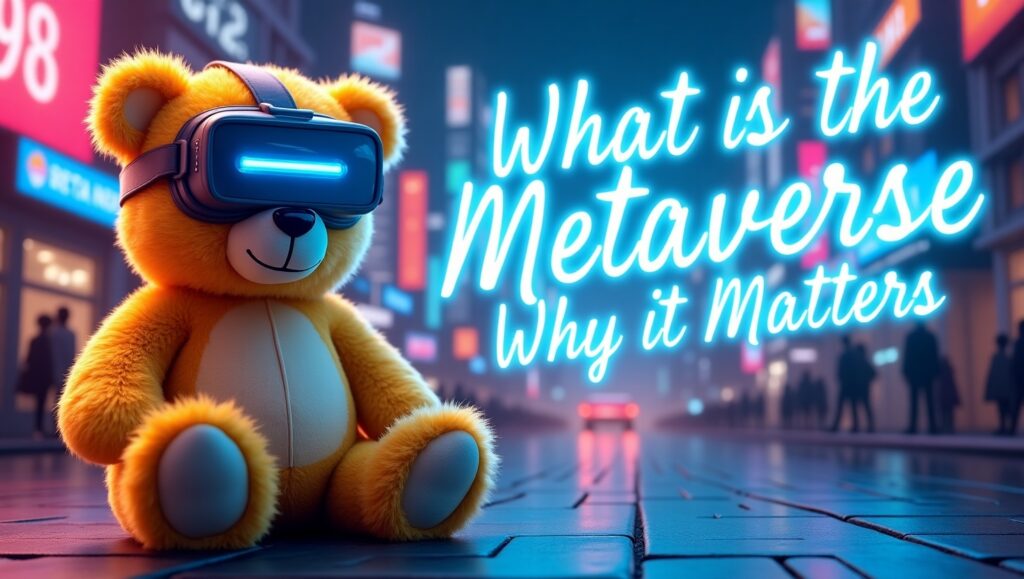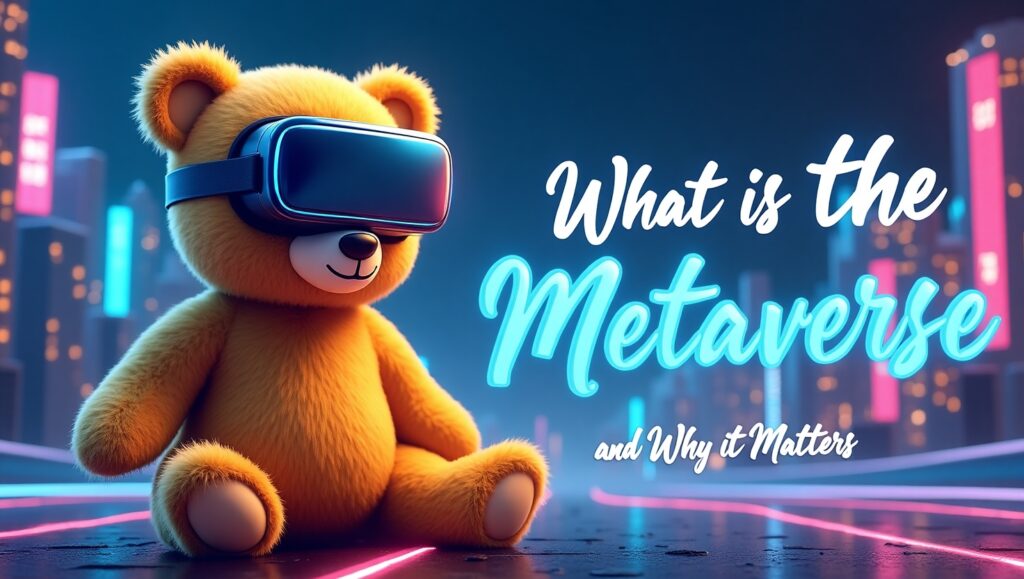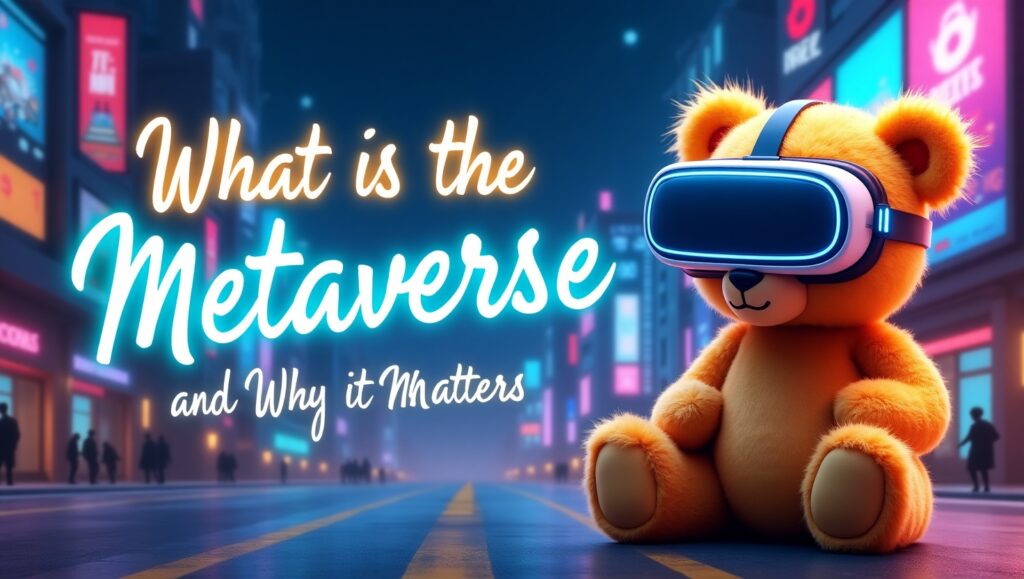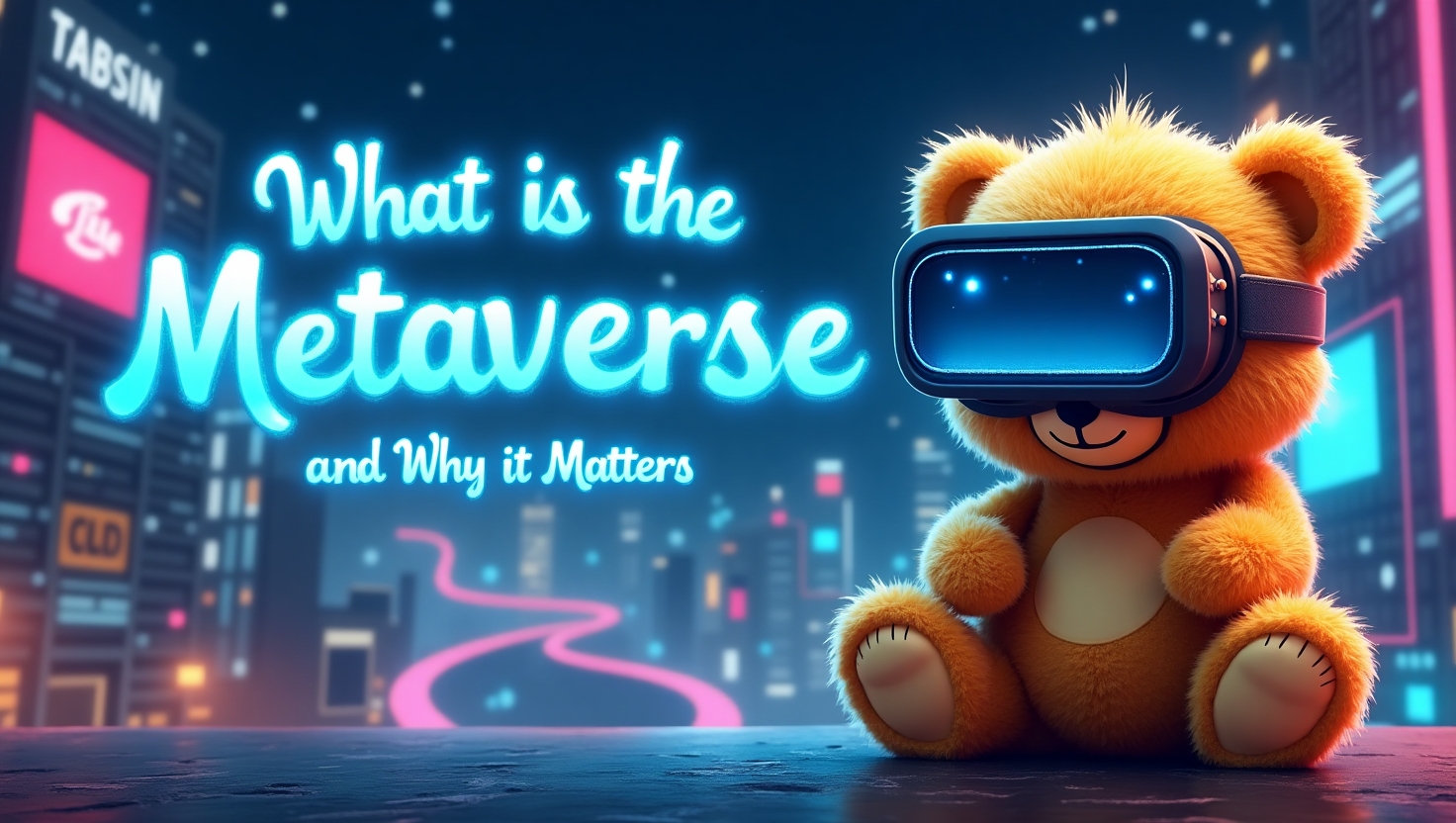The name “metaverse” has become a big issue in recent years, especially with internet titans like Meta (previously Facebook), Microsoft, and Apple investing extensively in virtual experiences. But what exactly is the metaverse, and why does it matter so much for our digital future?
In simple terms, the metaverse is a communal virtual world generated by the confluence of physical and digital realities. It’s not just a video game or a virtual conference room – it’s a full, interactive digital environment where people can socialize, work, shop, play, and create, all through the internet. This essay discusses what the metaverse is, why it’s essential, and how it’s impacting the future of human connection and digital existence.

What Is the Metaverse?
The word “metaverse” was initially coined in the 1992 sci-fi novel Snow Crash by Neal Stephenson, where it portrayed a 3D virtual environment where people lived simultaneous lives. Today, it refers to a far bigger concept — a persistent, shared digital universe that merges real-world experiences with virtual environments.
Think of the metaverse as a 3D version of the internet. Instead of viewing websites on a screen, you could walk around them with an avatar, attend virtual concerts, visit digital malls, or meet friends in a virtual café. It’s constructed using technologies like:
Virtual Reality (VR)
Augmented Reality (AR)
Blockchain and NFTs
Artificial Intelligence (AI)
5G and Cloud Computing
These technologies work together to provide a seamless experience where the borders between physical and digital worlds dissolve.
Why the Metaverse Matters
- New Ways to Socialize
The metaverse has the potential to transform how we engage with others. Instead of video conversations or text chats, people can meet in virtual locations, join events, or even build digital houses. It produces more engaging, life-like social interactions – especially for persons separated by distance. For example, in the metaverse, people from various countries could attend a virtual music concert together or cooperate in a 3D workspace. It breaks down geographical barriers and makes digital conversation feel more human. - A Digital Economy
The metaverse isn’t just about fun and games. It’s also offering new economic opportunities. Digital assets, such NFTs (non-fungible tokens), virtual land, and digital fashion, are becoming actual business. People are purchasing, selling, and trading virtual things for genuine money. Big brands like Nike, Gucci, and Adidas are already investing in metaverse fashion and experiences. Companies are setting up virtual stores and offices, making it a new frontier for corporate growth and inn - ovation

Revolutionizing Work and Education
Remote employment and online learning are becoming more immersive thanks to the metaverse. Instead of staring at a flat screen, employees and students can participate in 3D worlds that feel more natural and participatory. Imagine attending a history lecture where you can stroll through ancient Rome or participating in a team meeting where everyone is present as avatars in a shared virtual room. These experiences could make learning and working from home significantly more engaging and productive.- Empowering Creators and Developers
The metaverse is giving rise to a new wave of digital creators. Artists, game developers, educators, and businesspeople can build and commercialize their creations in virtual places. Platforms like Roblox, Decentraland, and The Sandbox allow users to create games, digital art, and even host events. This decentralized architecture empowers anyone to decide the future of the internet, not just major corporations. It’s a trend toward user-generated content and community-driven experiences.
Challenges and Concerns
While the metaverse offers fascinating potential, it also presents important questions: Privacy and Security: With so much data being captured in immersive environments, how will user privacy be protected? Digital Addiction: Will people spend too much time in virtual worlds, isolating themselves from reality? Access and Inequality: Not everyone can afford VR gear or fast internet. Will the metaverse widen the digital divide? Regulation: Who rules the metaverse? Should there be rules and laws in virtual spaces? These challenges must be addressed to guarantee the metaverse is a safe, inclusive, and equitable environment for all. The Future of the Metaverse
The metaverse is still in its early phases, but it’s evolving fast. Major investments from companies and artists are fuelling rapid development. Over the next decade, we may see the metaverse become as widespread as smartphones or social media are today. Imagine shopping in a virtual store where you try on clothes with your avatar, having job interviews in virtual offices, or designing a digital house with your own virtual furniture. These aren’t simply sci-fi dreams – they’re becoming real-world applications.

Conclusion
The metaverse symbolizes a new chapter in the growth of the internet — a place where physical and digital experiences come together. It’s transforming how we communicate, work, learn, and create. While obstacles exist, the metaverse has the potential to transform our digital lives in fascinating and significant ways. Understanding what the metaverse is and why it matters is the first step toward preparing for a future that’s more connected, immersive, and infinite than ever before. SEO Keywords: what is the metaverse, why metaverse matters, future of digital worlds, metaverse explained, metaverse technology, VR and AR in metaverse, benefits of the metaverse, digital economy .



